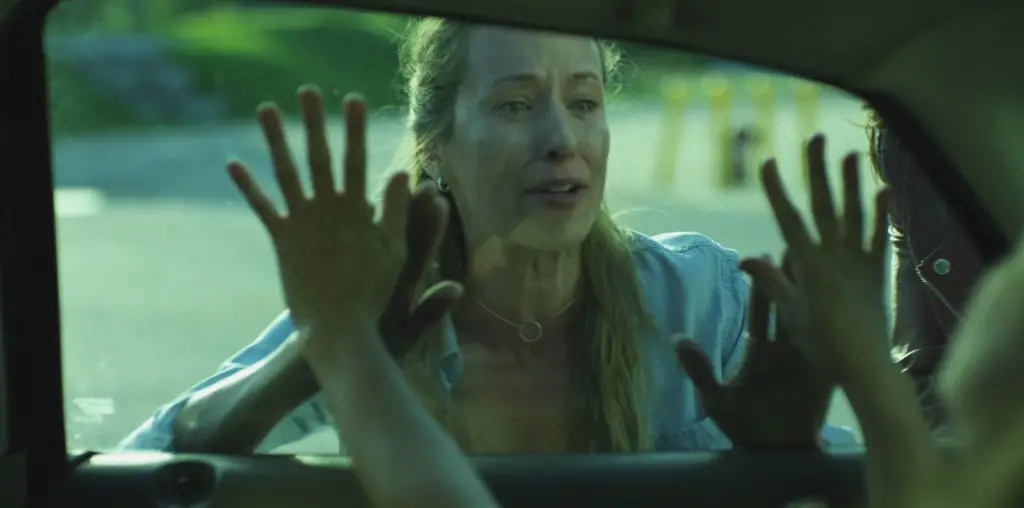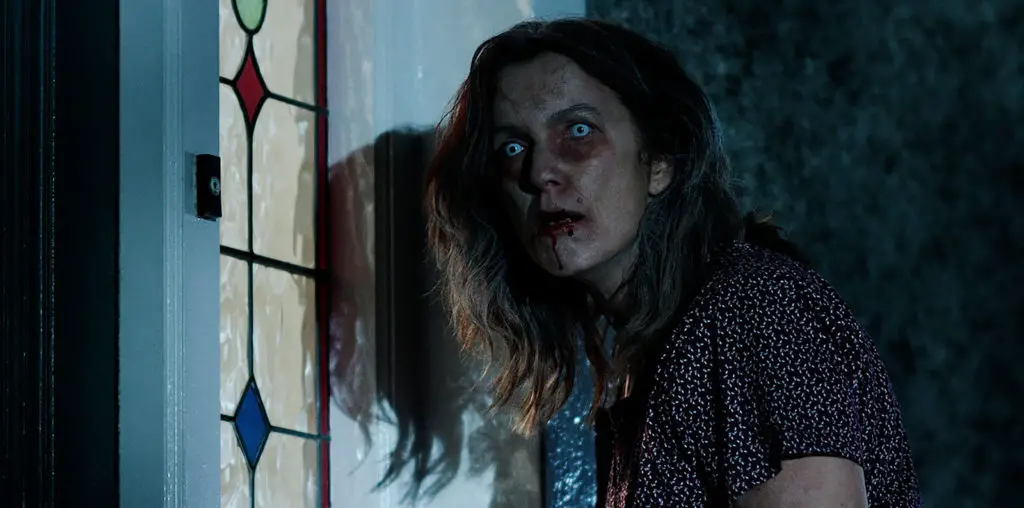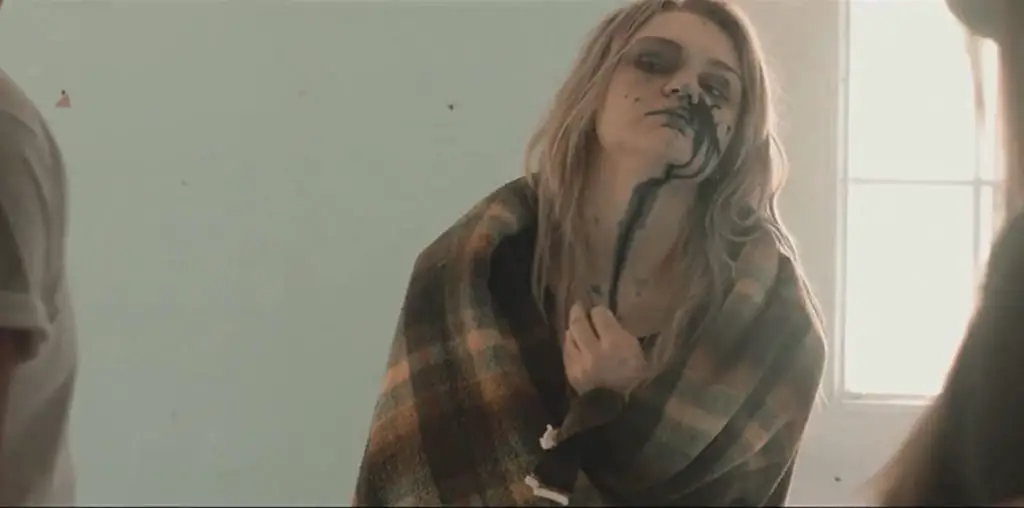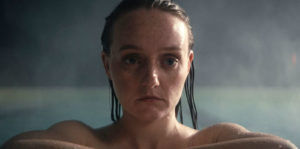
Zombie movies have been popular ever since George Romero created Night of the Living Dead. His low-budget classic has been praised for having sociological resonance and genuine scares. Following the COVID-19 pandemic, there’s been an onslaught of undead features. This is probably because the horror genre has always historically reflected societal anxieties. What is interesting about the wave of indie zombie films is the different approaches used to approach the genre. Wintertide, written by John Barnard and Carrie May-Siggins and directed by Barnard, provides a wonderfully innovative set-up. The zombie apocalypse comes in the form of a depressive state, possibly due to the recent wave of darkness that has swept through the land with no sun.
The “strays” are metaphorical for marginalized people on the fringes of society. The main protagonist, Beth (Niamh Carolan), is part of a volunteer neighborhood watch team tasked with locating strays. When she finds a stray, she calls for a security transport. Beth counts the days the sun doesn’t appear on a chalkboard. Humans all over are being afflicted with psychotic depression, and therefore, a mandate has been decreed that people be medicated with a powerful antidepressant. Beth does not take her medication and experiences out-of-body depersonalized dream states that seem to occur when she is intimate with another human. For some reason, Beth’s immune to psychotic depression.
Wintertide makes a statement about the contemporary isolation and alienation from others, which is an excellent way to approach this style of film and refreshing as well. Another great thing about this film is that it starts in media res, with no exposition whatsoever. This leaves a whole mess of strange occurrences for the audience to piece together. The camera is utilized well with some striking shots and makes great use of the limited actors amidst the stark location. The film evokes a strange atmosphere and maintains it from beginning to end, which is much to the credit of Barnard’s minimalist approach.
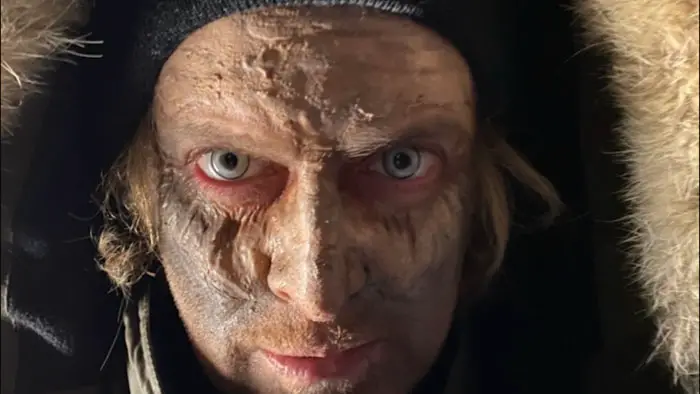
“…part of a volunteer neighborhood watch team tasked with locating strays.”
I remember seeing a documentary wherein famed filmmaker John Landis said that with some pioneering horror directors, there is a sense that you are in the hands of a mad person. You are not quite sure what direction you will go in with that person at the helm. Such is the case with Barnard, who takes the viewer on a dark journey. Part of the fun is that we do not know where the story is headed. This is the beauty of indie films: you never know quite what you are going to get or where you are headed.
In the end, I was left with the feeling of desolation and the reminder that what humanity needs right now is a little humanity. While on the surface, this appears to be yet another entry into the zombie genre, it’s a call for empathy in the devastation of a catastrophic event. Additionally, the filmmakers are commenting on the loss of human connection in the modern world.
Wintertide is not a wild and noisy ride like a big Hollywood zombie film such as World War Z. It is more of a slow burn. The film is a sci-fi/horror hybrid with lofty ambitions that allow it to rise above its budgetary limitations and well-tread genre trappings. I applaud this film for its unorthodox approach to the zombie genre. I recommend it to see how indie film reflects current anxieties and trends.
Wintertide screened at the 2023 Cinequest Film Festival.
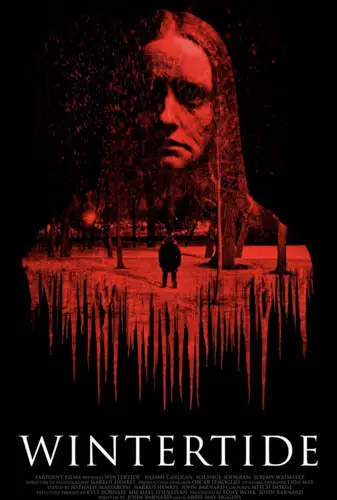
"…reflects current anxieties and trends."
